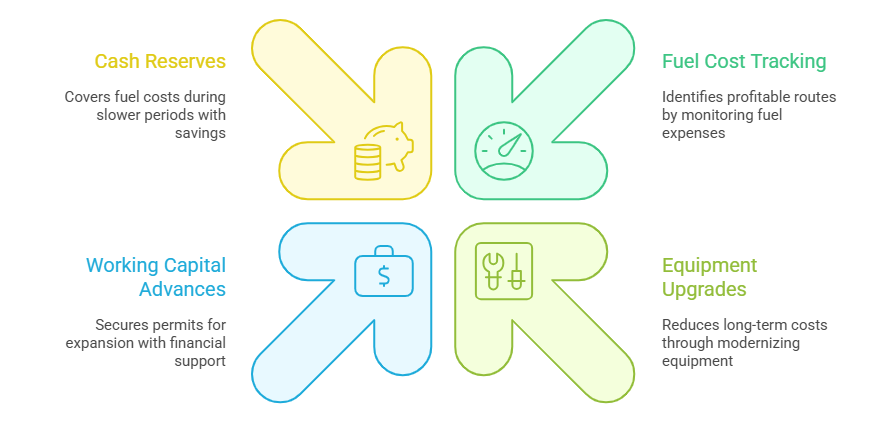Food truck operations face unique financial challenges that traditional businesses don't encounter. From mobile setup costs to fuel management and route expansion, these mobile ventures require flexible funding solutions that align with their daily cash inflows and seasonal fluctuations.
Common Questions About Food Truck Financing
Q: What types of expenses can a business advance cover for food truck operations?
A business advance for food truck operations can typically help with mobile setup costs, including equipment upgrades, point-of-sale systems, and vehicle modifications. Many food truck owners also use advances to manage fuel expenses, secure permits for new routes, and cover inventory purchases during peak seasons.
Q: How do daily cash inflows affect financing approval?
Daily cash inflows from food truck operations often work well with revenue-based financing options. Since food trucks generate sales throughout the week, lenders may evaluate your average daily receipts to determine advance amounts and repayment structures that align with your cash flow patterns.
Managing Mobile Setup Costs Effectively
Mobile setup costs represent one of the largest expenses for food truck operators. These expenses go beyond the initial vehicle purchase and include specialized cooking equipment, refrigeration systems, and safety modifications required for commercial food service.
Many food truck owners find that strategic financing helps them invest in higher-quality equipment upfront, which can reduce maintenance costs and improve operational efficiency over time. The ability to spread these costs over several months while generating revenue can make the difference between a basic setup and a professional operation that attracts more customers.
Technology upgrades, such as modern point-of-sale systems and mobile payment processing, often require significant upfront investment but may improve daily cash inflows through faster transactions and better customer experience.
Fuel Management and Route Expansion Strategies

- Track fuel costs across different routes to identify the most profitable locations and optimize your schedule accordingly
- Consider financing fuel-efficient equipment upgrades, such as generators or refrigeration units, that could reduce long-term operational costs
- Use working capital advances to secure permits and licenses for new territories before committing to route expansion
- Build cash reserves during peak seasons to cover fuel expenses during slower periods or when testing new locations
Optimizing Daily Cash Inflows Through Strategic Financing
- Invest in inventory management systems that help predict daily needs and reduce waste, improving profit margins
- Use advances to stock up on popular items during supplier promotions, then benefit from higher margins throughout the season
- Finance marketing initiatives, such as social media advertising or event participation fees, that can drive higher daily sales
- Consider equipment financing for items that directly increase serving speed, allowing you to serve more customers during peak hours
A business advance for food truck operations can provide the flexibility needed to manage the unique challenges of mobile food service. By strategically using financing for mobile setup costs, fuel management, and route expansion, food truck owners may improve their daily cash inflows and build more sustainable operations. The key lies in choosing financing options that align with your revenue patterns and growth objectives.

.png)






